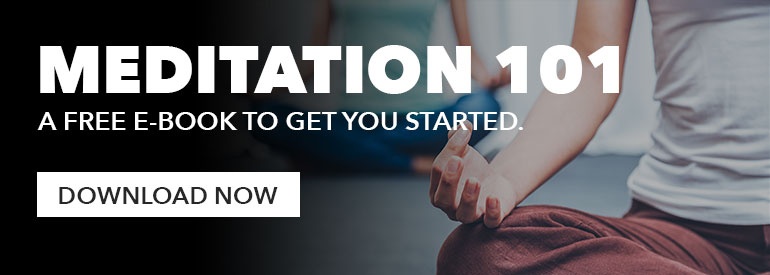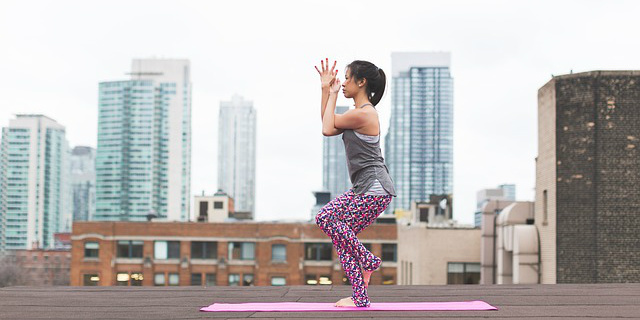 Reading Time: 4 minutes
Reading Time: 4 minutesQuick, name three good things that happened to you recently.
Next, name three things that aren’t going well.
Which was easier?
If you’re like most people, coming up with negative examples was much easier. It probably wasn’t difficult to think of more than three things that are causing you stress or worry.
The reason for this is something called “negativity bias.”
This is a phenomenon that causes our minds to react more strongly and persistently to bad things.
There’s a good reason for negativity bias, from an evolutionary perspective. It used to be important for us to remember which plants were poisonous, where the predators lurked, and any experience that put us in harm’s way. For this reason, our brains are hard-wired to be more sensitive to negative, unpleasant things.
But most of us no longer encounter mortal dangers on a daily basis. So instead of being alert to physical threats, our brains focus on other negative experiences: disappointments, failures, awkward interactions, and mistakes.
It takes effort to overcome this negativity bias and recognize the good in our lives. This is especially true when you’re in the midst of changing your habits. Over and over, your mind will go to your missteps, instead of celebrating your successes.
And if you’re convinced you’ll ultimately fail, it’s almost impossible to stay motivated in the here and now. This is why it’s essential to learn how to focus on the positive.
It’s not easy, fighting our brain’s pessimistic nature, so here are four tools you can use to overcome your innate negativity bias.
1. Keep a “Done” List
Most of us have extensive “to do” lists, but have you ever stopped and reflected on everything you’ve accomplished?
If your list of tasks is causing stress and making you feel as if you’re never getting anything done, start a “done” list. Once you’ve completed a task, move it to the “done” list. Check in with that list periodically to get a boost of encouragement from everything you’ve accomplished.
2. Build in Simple Pleasures
An easy way to keep a positive attitude is to build in simple pleasures throughout the day. We are conditioned to hold out for big events, like a vacation or a birthday, but researchers have found frequent, small positive experiences influence our happiness more than large, infrequent ones.
These treats should be inexpensive (and Whole Life Challenge compliant if you’re currently playing our game), like spending a few minutes enjoying your favorite view, buying flowers for your home, or sitting in a comfortable chair reading a good book or magazine. Think of small things that bring you pleasure and sprinkle them throughout your day.
3. Be Mindful
While you are enjoying one of your simple pleasures or a bigger positive experience, remember to stop and savor the moment. Reflect on your happiness. If you’re sitting outside reading a book, take a moment to feel the breeze on your face and the sun on your arms. Force your brain to push aside the negative thoughts and spend a minute on the positive.
If thoughts of negative experiences enter your brain, try to keep the positive experience more prominent. This will help you practice not letting negative thoughts and worries overwhelm your mind.
4. Move on from Mistakes
One of the biggest missteps people make when trying to improve their health is to allow a single mistake to spiral into defeat. A weekend away, eating and drinking with abandon, will cause many people to give up their healthy habits entirely. One weekend won’t undo weeks of hard work, but our negativity bias gives more weight to the occasional misstep.
By the way, the Whole Life Challenge is set up to include occasional indulgences for this reason. Making these treats part of the plan means removing the negative emotion associated with the experience. Four days of almost-perfect nutrition scores earns you an Indulgence Bonus, which means that glass of wine is part of the plan, not a moral failure on your part.
Another way to move on from mistakes is to reflect on what you’ve done well. The Whole Life Challenge makes this easy by allowing you to look at your score across a week or month and seeing how much you’ve exercised, slept well, kept your nutrition on track, and hydrated. But you can also do this offline or outside of Challenge time by keeping a journal.
Accept the Negative, But Focus on the Positive
You will make mistakes — we all do. The challenge is not to let those mistakes or any resulting negative thoughts drag you down. Overcoming our innate negativity bias takes effort, but it’s an essential part of finding happiness and reaching your goals.










